Class 10 Exam > Class 10 Notes > History for GCSE/IGCSE > Was Nazi Germany a Totalitarian State?
Was Nazi Germany a Totalitarian State? | History for GCSE/IGCSE - Class 10 PDF Download
Totalitarianism
- Totalitarianism refers to a form of government that possesses absolute control over its citizens.
Arguments Supporting Nazi Germany as a Totalitarian State
- Nazi Germany exhibited characteristics of a totalitarian state through its centralized control and suppression of opposition.
- The regime used propaganda, censorship, and fear to maintain authority.
- Citizens' lives were heavily regulated, with the state intruding into personal spheres.
- Secret police like the Gestapo ensured conformity through surveillance and intimidation.
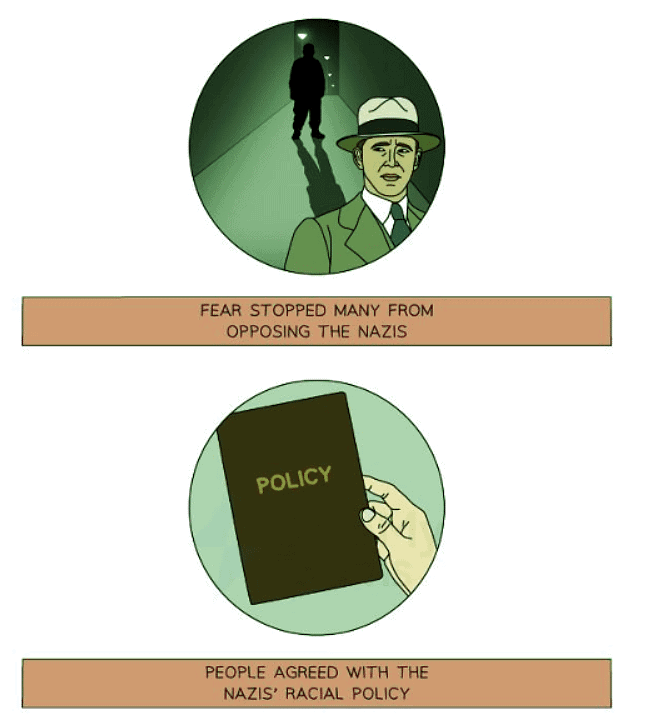
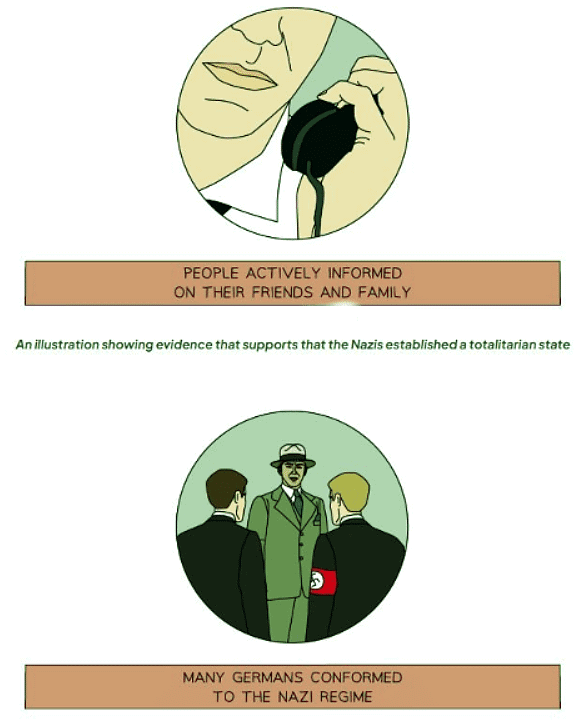
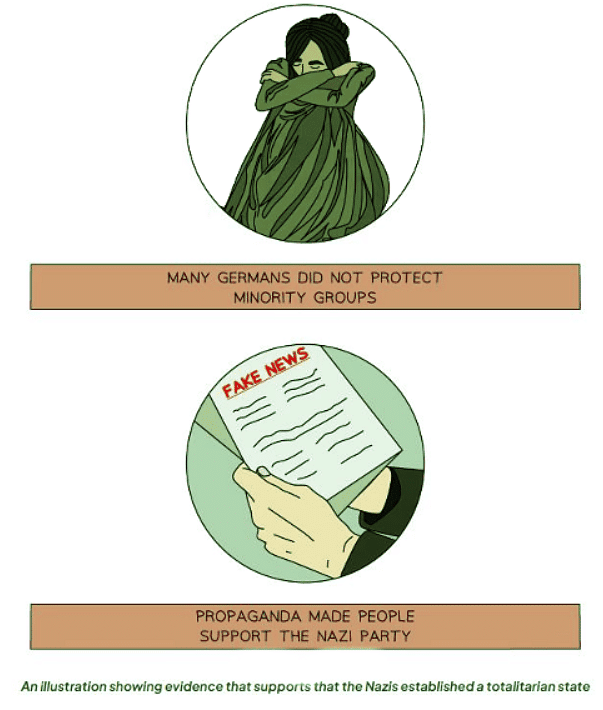
Arguments That Challenge That Germany was a Totalitarian State
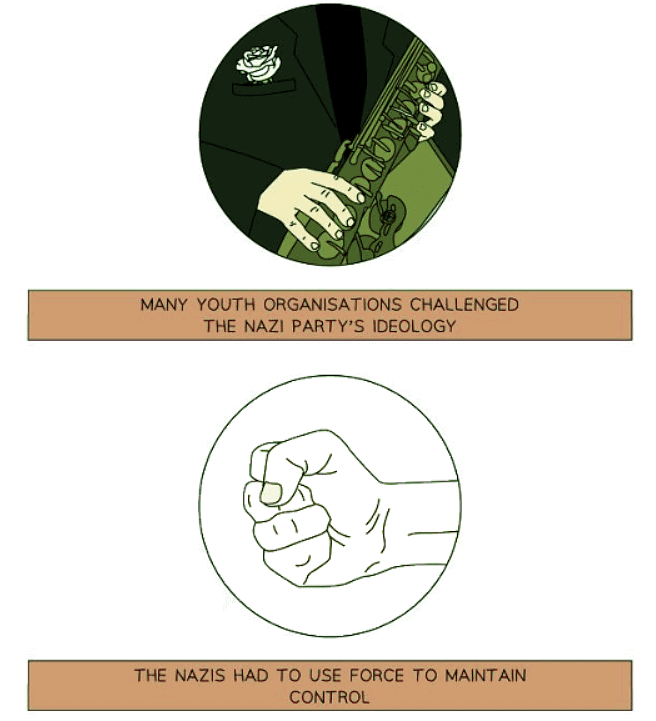
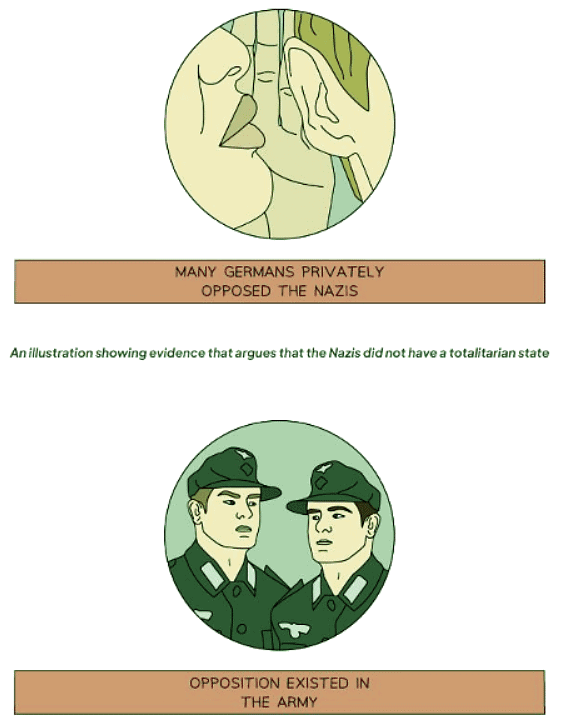
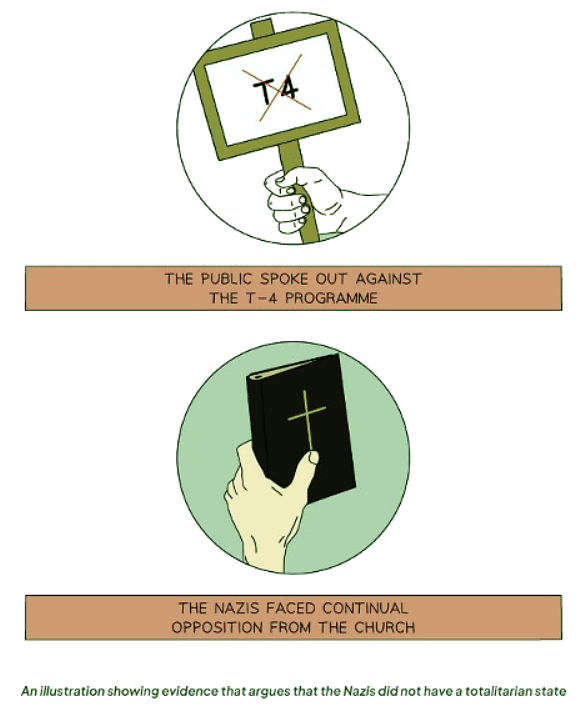
The document Was Nazi Germany a Totalitarian State? | History for GCSE/IGCSE - Class 10 is a part of the Class 10 Course History for GCSE/IGCSE.
All you need of Class 10 at this link: Class 10
|
79 videos|87 docs|18 tests
|
FAQs on Was Nazi Germany a Totalitarian State? - History for GCSE/IGCSE - Class 10
| 1. Was Nazi Germany considered a Totalitarian State? |  |
Ans. Yes, according to many historians, Nazi Germany was considered a Totalitarian State due to the extensive control the government had over all aspects of society, including the economy, media, education, and individual freedoms.
| 2. What are some arguments challenging the idea that Nazi Germany was a Totalitarian State? |  |
Ans. Some arguments challenging the classification of Nazi Germany as a Totalitarian State include the presence of resistance movements, limitations on the power of the Gestapo, and the existence of rival power bases within the Nazi regime.
| 3. How did the Gestapo and concentration camps play a role in the control of Nazi Germany? |  |
Ans. The Gestapo, the secret police of Nazi Germany, played a crucial role in maintaining control and suppressing dissent through surveillance, interrogation, and fear tactics. Concentration camps were used to imprison and eliminate political opponents, minorities, and anyone deemed a threat to the regime.
| 4. Can you explain how the control over the economy in Nazi Germany contributed to its status as a Totalitarian State? |  |
Ans. The Nazi government had complete control over the economy in Nazi Germany, implementing policies such as central planning, nationalization of industries, and labor regimentation. This control allowed the government to dictate production, distribution, and pricing, further solidifying its totalitarian control.
| 5. How did the education system in Nazi Germany contribute to its Totalitarian State status? |  |
Ans. The education system in Nazi Germany was heavily controlled by the government, with a focus on indoctrination, propaganda, and the promotion of Nazi ideology. Children were taught to be loyal to the state and Hitler, further reinforcing the regime's totalitarian control over the population.
Related Searches















